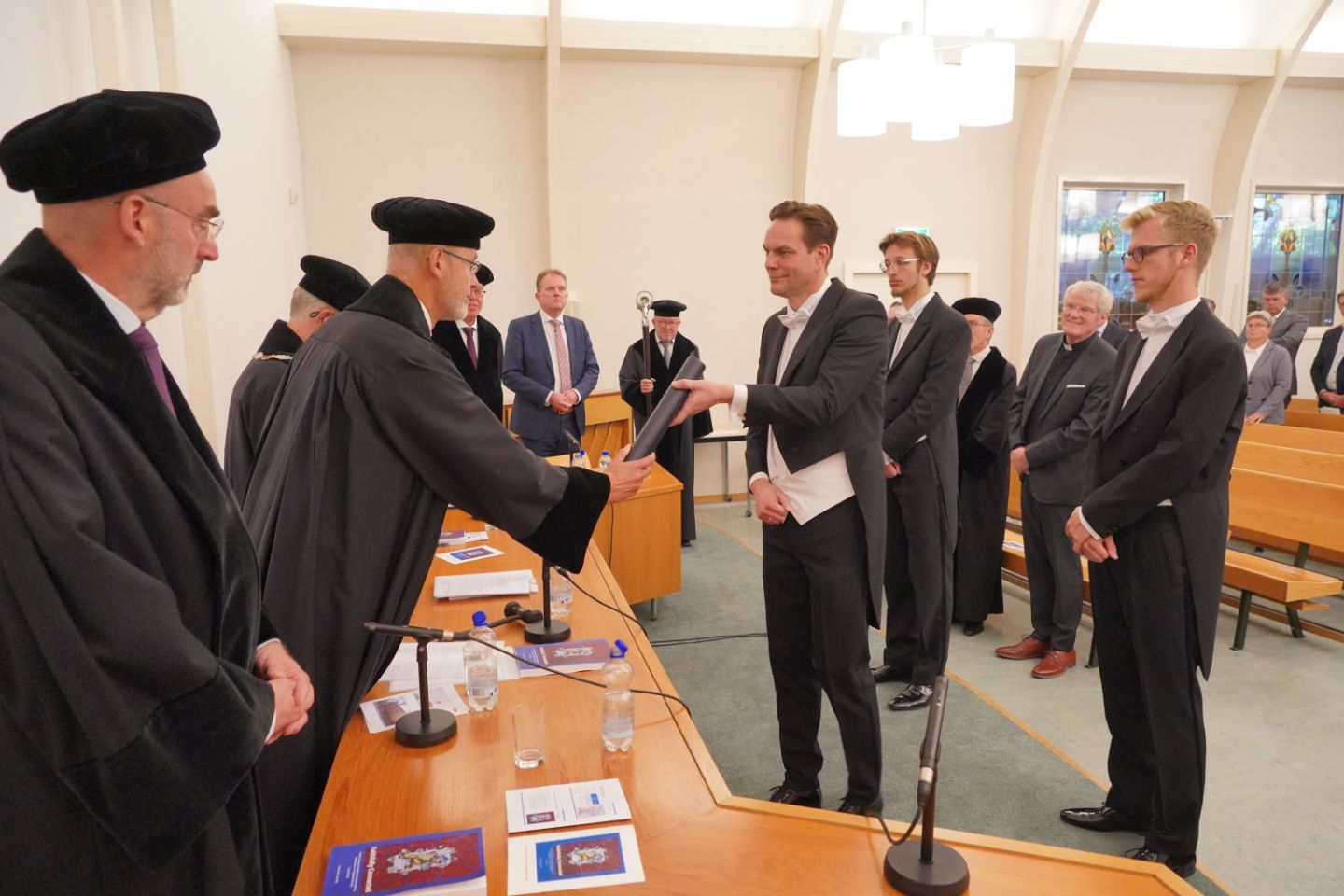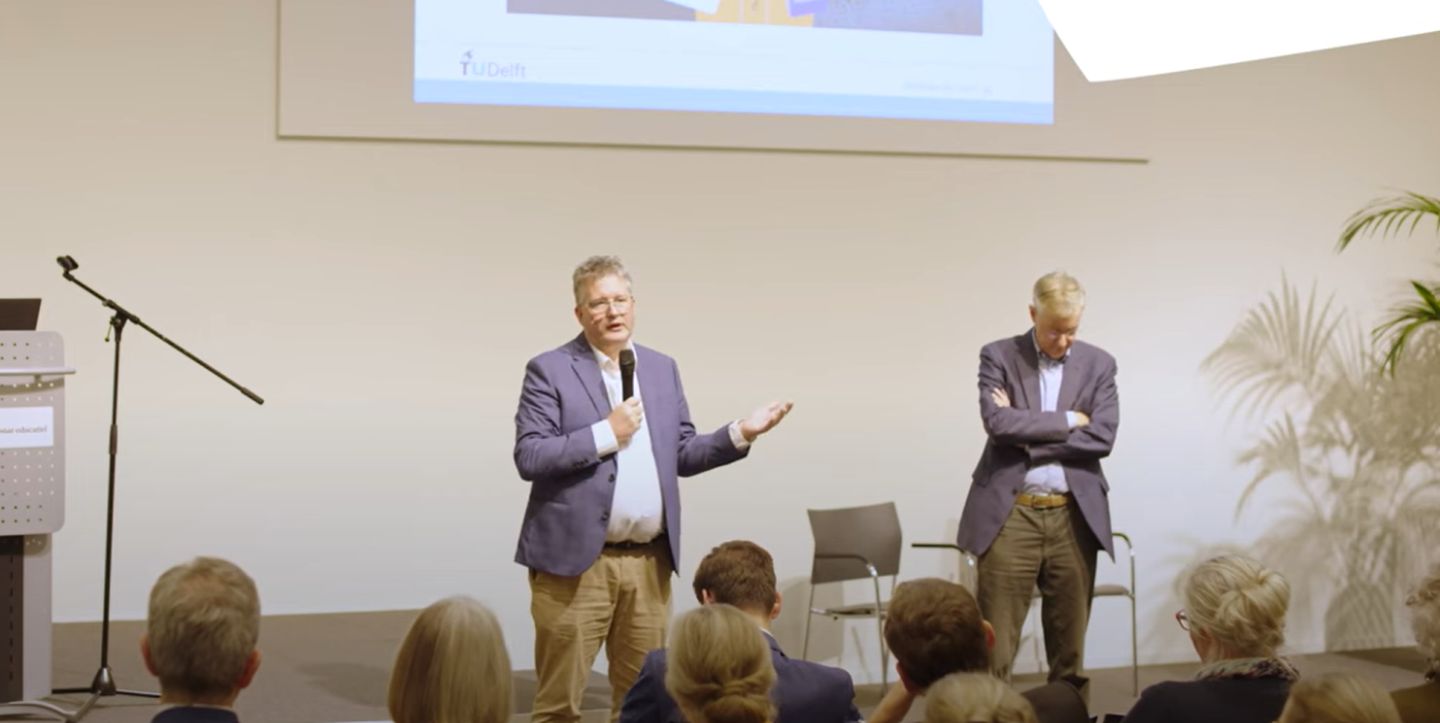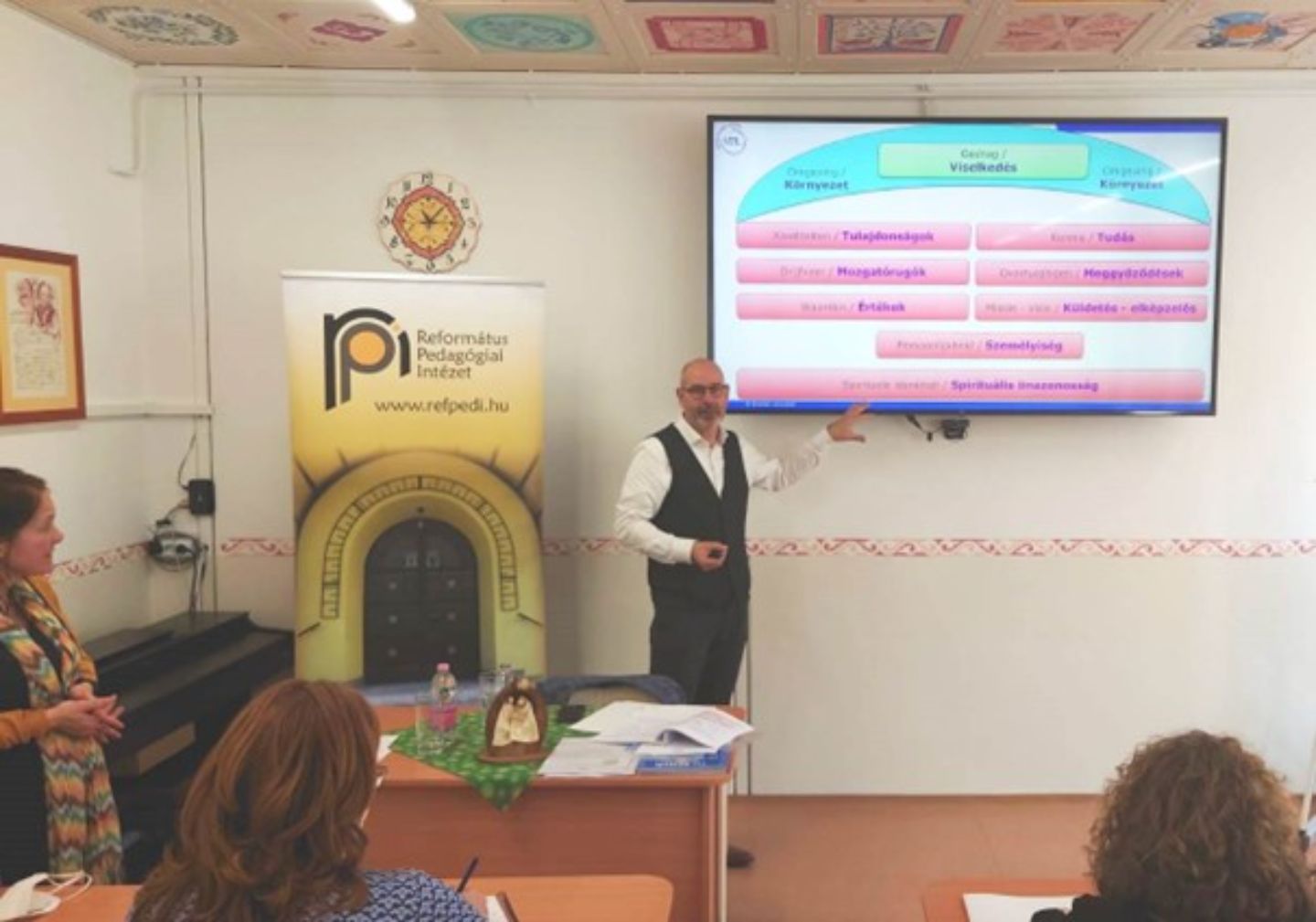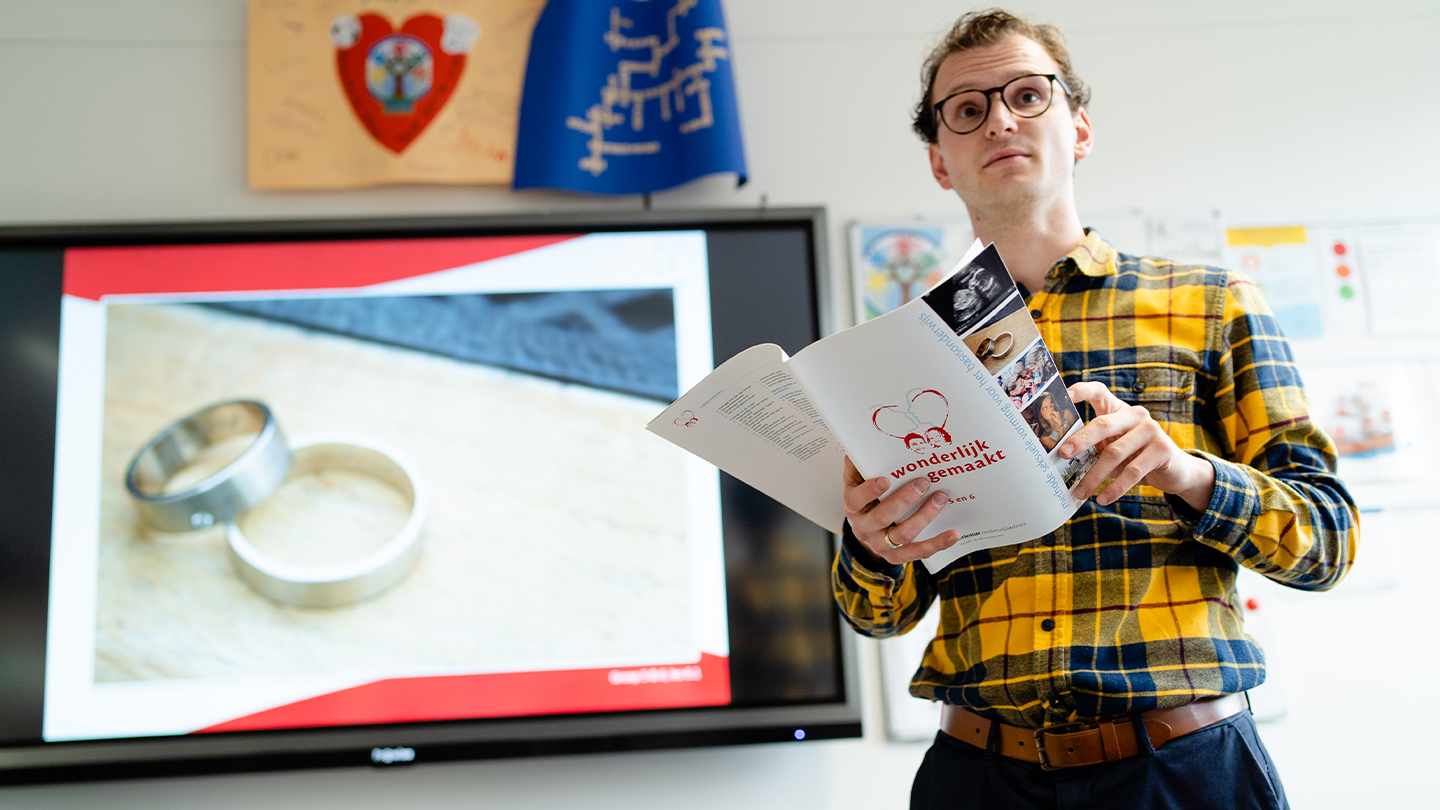How can you teach in a way that invites students to take their place in the world and contribute to the society in which they live? That question grows more challenging as the world and society become more diverse and complex.
This certainly applies to teachers who, from a deep inner motivation, opt for (Reformed) Christian education. Is it possible to invite children wholeheartedly, from that deep motivation, to make such a positive contribution, when you feel that society is growing further and further away from your own roots? And what does that require?
This study focuses on the broad education of (trainee) teachers. It was done for Driestar University of Applied Sciences as a now eighty-year-old Christian teacher training institute. If the world we live in and the society we are part of are becoming increasingly fragmented, how can a holistic approach strengthen the Christian citizenship formation of teachers in that society?
That central question is discussed in the study from both theory and practice of explicit (Reformation) Christian primary education in a metropolitan, multi-ethnic setting with a high degree of diversity in and around the classroom.
Following the method of theological action research, an attempt was made to connect theory and practice in such a way that it would be fruitful for Driestar’s formation process. A research group of ten people from primary education and Driestar itself developed joint insights over four years on how to form Christian teachers in light of the big questions of the fragmented world, society and personal experience.
In the process, students also constantly contributed their own insights and experiences. This not only led to a common language to express the acquired insights, but also to concrete initiatives for the teacher training curriculum.

What is needed is formation that enables the trainee teacher to dare to stand alone and to enter into connections with dissenters and with society as a whole on the basis of one's own beliefs. To do so, students must learn to combine firmness of principle and openness.
To make this possible, they need a relational theory of knowledge (epistemology) and a basic attitude of service to fellow human beings, society and the world, according to the study. These elements come together in the Biblical concept of shalom and the shalom-seeking citizenship advocated by the study. The broadly formative approach appeals to the hands, head and heart of the Christian (trainee) teacher.
At the end of the study, the conclusion leads to concrete support and recommendations for the Driestar teacher training curriculum, which can also prove useful for teacher education and training elsewhere in the world.
They give a time-bound elaboration of the adage of the father of Christian education in the Netherlands, Mr Gillaume Groen van Prinsterer. His ‘In isloment lies our strength’ calls for both faithfulness and openness. That is what Faithfully Connected aims at.
Brief résumé
Peter van Olst (1976) studied political science and theology. After a career in journalism (Reformatorisch Dagblad) and international missionary work (Zending Ger. Gemeenten), he has been working as a teacher trainer at Driestar University for teacher training since 2017.
He recently was appointed coordinator of Identity, Formation and Citizenship there. Van Olst lives with his wife Sofieke and their youngest sons Thijs and Thimo in Waddinxveen. Older sons Theo and Thomas are his paranymphs during the public defense.



